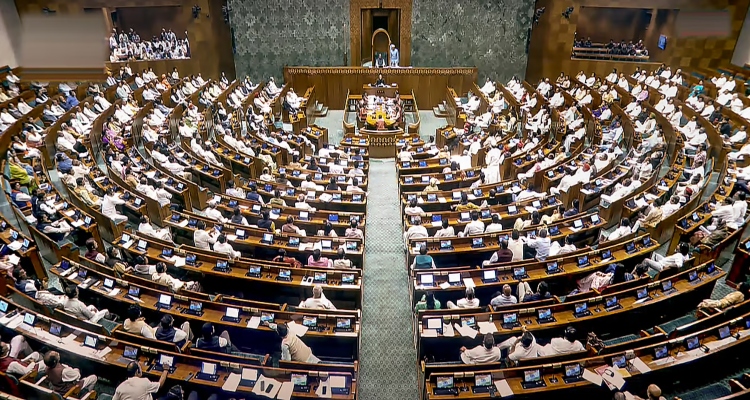
In a landmark decision, the Lok Sabha has passed the Waqf (Amendment) Bill, 2025, aimed at overhauling the management of Waqf properties across India.
The Bill proposes amendments to the Waqf Act, 1995, with the goal of enhancing governance, efficiency, and accountability in the administration of these religious endowments.
The Bill was introduced by Union Minister Kiren Rijiju and debated extensively on Wednesday. After more than 12 hours of intense discussions, it was passed at around 2 am on Thursday with 288 MPs voting in favor and 232 opposing the legislation.
Speaking in support of the Bill, Rijiju clarified, “This amendment does not infringe upon the religious rights of Muslims. It strictly pertains to the management and administration of Waqf properties.” He even pointed out the urgency of the legislation, stating, “If we hadn’t brought this Bill now, even the Parliament building could have been claimed as Waqf.”
Government’s Assurance
Union Home Minister Amit Shah addressed concerns raised by critics, stating, “There’s a misconception that this Bill interferes with religious affairs or properties dedicated by Muslims. I assure you, not even one non-Muslim will have a say in the Waqf Board.”
BJP MP Tejasvi Surya echoed this sentiment, asserting that the Bill would rectify what he called a “constitutional fraud” imposed by the Congress party in the past.
Opposition Voices Strong Criticism
The opposition parties were quick to condemn the Bill, accusing the government of undermining constitutional principles:
Congress MP Gaurav Gogoi labeled the Bill an “attack on the basic structure of the Constitution.”
AITC MP Kalyan Banerjee argued that the legislation violates the fundamental right of Muslims to manage their religious affairs under Article 26 of the Constitution.
Congress MP KC Venugopal criticized the ruling party for attempting to “polarize the country for political gain,” warning that the world is watching India’s approach to minority rights.
Key Concerns Raised By MPs
RSP MP NK Premachandran questioned the inclusion of non-Muslim members on the Waqf Board, asking, “Are the same rules applicable to temple devaswom boards?”
Independent MP Abdul Rashid Sheikh claimed that the Bill’s passage was a result of the BJP’s majority in the Lok Sabha, suggesting that Muslims were caught in the crossfire of political maneuvering.
Congress MP K. Francis George dismissed the idea that the Bill would resolve the Munambam Waqf dispute in Kerala, stating that “clarifying ambiguous provisions would be more effective without compromising Muslim rights.”
Symbolic Protest By AIMIM
In a dramatic protest, AIMIM MP Asaduddin Owaisi tore a copy of the legislation in the House, calling it a “mockery of democracy.” He alleged that the government’s true intention was to “appoint its loyalists” to the Waqf Council and Boards under the guise of neutrality.
What’s in the Waqf (Amendment) Bill, 2025?
First introduced in August 2024, the Bill was later reviewed by a Joint Parliamentary Committee (JPC), which suggested specific amendments to improve its provisions.
The legislation proposes renaming the 1995 Act as the “Unified Waqf Management, Empowerment, Efficiency, and Development Act.” This new title reflects the government’s ambition to enhance the management, transparency, and development of Waqf properties across the nation.
A Waqf refers to properties dedicated exclusively for religious or charitable purposes under Islamic law. The Waqf Act, 1995 governs the administration of these properties, defining the roles and responsibilities of the Waqf Council, State Waqf Boards, Chief Executive Officers, and mutawallis (managers).
The Act also outlines the powers and functions of Waqf Tribunals, which act as quasi-judicial bodies to resolve disputes related to Waqf properties.
Read More: Supreme Court, Delhi High Court, States High Court, International




